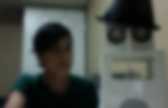

Zhiyan
iPhone 4: Why We’ve Reconsidered Its Rating - PCWorld. If you were following this morning's Apple press conference, you may have seen PCWorld's name listed as one of the publications that lauded the iPhone 4 as the number one smartphone available. Unfortunately, after today's news and the number of issues that drove Apple to call this press conference in the first place, PCWorld has decided to take the iPhone 4 off our Top 10 Cell Phones chart and reassign it a "pending" rating. While offering users a free bumper is a step in the right direction, it does not excuse the faulty hardware. Furthermore, there was no absolute promise on fixing the proximity sensor issues. Jobs said the company will "try" and get it fixed them in the next software update, but did not indicate exactly when that will happen.
We still stand by our praise of the camera, display, hardware aesthetics and user interface, as stated in the original review. Homeopathy. Homeopathy is a type of alternative medicine invented in the late 18th century by German physician Samuel Hahnemann. It is based on two ideas: "let like cure like" (similia similibus curentur),[2] meaning that a substance that causes disease symptoms can also cure those same symptoms; and that dilution increases potency.[3] Both ideas are not only the opposite of what medical science usually observes, but the opposite of common sense too.
Homeopathy is fundamentally different from herbal medicine, with which it is often confused. While some "homeopathic" medicines are simply herbal supplements labelled as homeopathic, often to take advantage of regulatory loopholes, true homeopathic remedies are so greatly diluted that they contain no active ingredients. The only measurable ingredients are the putative "inactive" ingredients, such as water,[4],alcohol,[5], or sugar. Those homeopathic pills for sale at your local pharmacy?
[edit] Principles and history [edit] Dilution and water memory And: I don't know how, but homeopathy really does work | Rachel Roberts. I was a dedicated scientist about to begin a PhD in neuroscience when, out of the blue, homeopathy bit me on the proverbial bottom. Science had been my passion since I began studying biology with Mr Hopkinson at the age of 11, and by the age of 21, when I attended the dinner party that altered the course of my life, I had still barely heard of it. The idea that I would one day become a homeopath would have seemed ludicrous. That turning point is etched in my mind. A woman I'd known my entire life told me that a homeopath had successfully treated her when many months of conventional treatment had failed.
As a sceptic, I scoffed, but was nonetheless a little intrigued. She confessed that despite thinking homeopathy was a load of rubbish, she'd finally agreed to an appointment, to stop her daughter nagging. I admit I ruined that dinner party. Scientists are supposed to make unprejudiced observations, then draw conclusions. The facts, it seems, are being ignored.
Homeopathy. The end of homeopathy? Time after time, properly conducted scientific studies have proved that homeopathic remedies work no better than simple placebos. So why do so many sensible people swear by them? And why do homeopaths believe they are victims of a smear campaign? Ben Goldacre follows a trail of fudged statistics, bogus surveys and widespread self-deception. Ben GoldacreThe Guardian Friday November 16 2007 There are some aspects of quackery that are harmless – childish even – and there are some that are very serious indeed. The article does not say that, and I should know, because I wrote it. And there is the rub. Enough is enough. So let’s imagine that we are talking to a fan of homeopathy, one who is both intelligent and reflective. But perhaps it’s the placebo effect? The placebo response is about far more than the pills – it is about the cultural meaning of a treatment, our expectation, and more.
“Well, it could be that,” says your honest, reflective homeopathy fan. Congratulations. And what porkies. U2's best album? Totally 'Unforgettable' U2. U2 are an Irish rock band from Dublin. Formed in 1976, the group consists of Bono (vocals and guitar), The Edge (guitar, keyboards, and vocals), Adam Clayton (bass guitar), and Larry Mullen Jr. (drums and percussion). U2's early sound was rooted in post-punk but eventually grew to incorporate influences from many genres of popular music. Throughout the group's musical pursuits, they have maintained a sound built on melodic instrumentals.
U2 have released 13 studio albums and are one of the world's best-selling music artists of all time, having sold more than 170 million records worldwide.[2] They have won 22 Grammy Awards, more than any other band; and, in 2005, were inducted into the Rock and Roll Hall of Fame in their first year of eligibility. History[edit] Formation and early years (1976–80)[edit] "We couldn't believe it. —The Edge, on winning the CBS competition[10] Boy, October, and War (1980–84)[edit] Bono performs in Norway during the War Tour in 1983. Musical style[edit] Footnotes. Help.